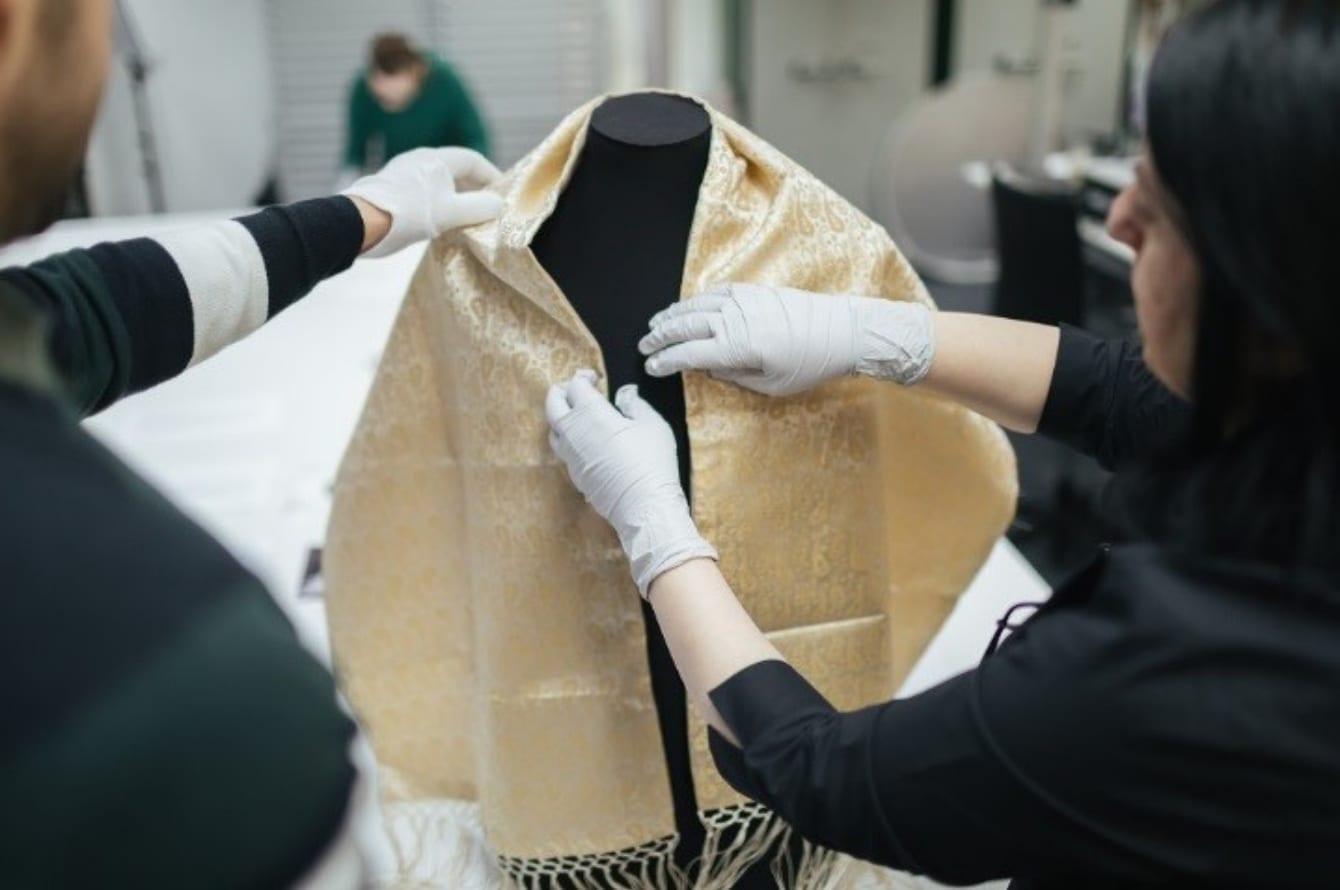A team of volunteers, who arrived in Oxford as forced migrants from Syria, Sudan and Zimbabwe, are behind a new display of textiles at the Pitt Rivers Museum.
Multaka: Connecting Threads, which launches on Friday 5 April, has been co-curated by a team of volunteers with Multaka-Oxford, a two-year project in which the Pitt Rivers and the History of Science Museum are partnering with local community organisations to create volunteering opportunities for forced migrants.
The display is based around a collection of textiles from the Middle East and North Africa, which has been donated to the museum by Dr Jenny Balfour-Paul – a collector of worldwide textiles and a renowned expert in indigo dye. The five volunteers have been working with museum collections and exhibitions staff to research the collection and offer new perspectives using personal stories and observations.
The display comprises textiles from the collection, supplemented with personal items and photos. A series of captions provide personal insights into the objects and narrate the personal histories of the volunteers. The different narratives serve to bring new perspectives to the collection and reveal the common threads that link us all.
For the volunteers, the opportunity to co-curate the display has enabled them to share their perspectives, expertise and memories as well as learn new skills. Hussein Ahmed, who worked in a textile factory in Syria to pay for his law studies, provided a photo of himself as an embroidery machinist to help illustrate the embroidery on a dress from Saraqib in Syria, which forms the centrepiece of the display.
‘In modern garments, there is often embroidery around the neck and chest, just as on the traditional dress,’ he explains. ‘The work of this machine is much faster than embroidering by hand, but I consider the manual work to be more artistic. It is more meaningful when you wear something handmade.’
A silk brocade scarf from Damascus also features alongside the dress, lent by Niran Altahhan – a volunteer who came to the UK from Syria three years ago.
‘I presented a brocade scarf especially for this exhibition as it is the most precious thing that I have from my country Syria,’ says Niran. ‘The war takes all your memories, dreams, past, future. In the midst of all this darkness, a dear friend surprises me by sending a gift from my homeland to become a precious treasure.’
Multaka: Connecting Threads runs in the Lower Gallery of the Pitt Rivers Museum until 30 September
